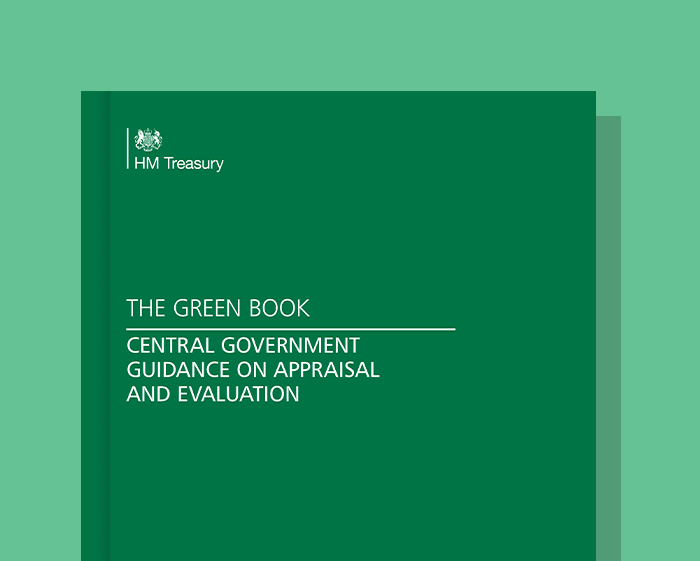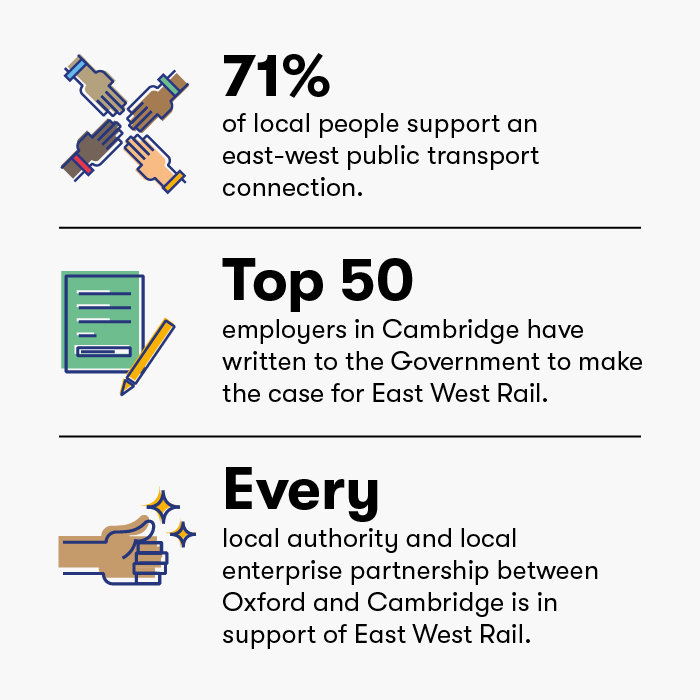The East West Rail Business Case Process
One of the questions we’re asked is “when will a business case for East West Rail (EWR) be published?”. We’ve set out some of the key information here as a quick guide.
The business case for a major project like EWR is developed over several years, using research, studies, technical surveys, and consultations. We also develop complex econometric models that underpin our analysis. It follows a clear process set out by Government.
At this point in the process, EWR is not expected to have a full business case. This is because a range of options and concepts are still being considered, each with their own impact on costs and benefits.
A full business case will be submitted to Government for approval before building can start. We expect an early version of our business case to be shared with government around the same time as we submit the Development Consent Order (DCO) for approval, but this will not be the final version. The full business case will then be prepared post DCO, but this will not be complete for several years.
As we engage with the public on our proposals and through public consultation, we will continue to publish the information we collate where we can.
Guidance on developing a Business Case
The business case is central to how HM Treasury appraises and evaluates projects like EWR.
The process for developing a business case is outlined in the Government’s ‘Green Book’ – and is also subject to the requirements set out in the Department for Transport’s Transport analysis guidance.
The end result is a Full Business Case which is submitted to the Government before the go-ahead is given to start building a scheme.


East West Rail is at the early stages of project development
EWR is still in the early planning stages and has been consulting communities from the outset so that local residents, businesses and other stakeholders can help shape the business case. At this stage of project development, the information that will support the business case is continuously evolving as more evidence comes to light and the project is refined.
The business case and the plans and design for the railway are developed in parallel; they influence and are influenced by each other. As we learn more through consultation, environmental surveys, economic analysis and other research, the business case evolves. This process takes time.
We envisage that the business case will be published after it’s completed, which is standard for this type of project, but this will not be for several years.
Find out moreThe case for East West Rail
Recently the government restated their commitment to East West Rail. This reflects how important this project is for both economic growth and the quality of life in this area. And that’s why 71 per cent of local residents support a new transport link between Oxford and Cambridge, supported by local authorities and businesses who have been so steadfast in their backing for the project.
While we're not in a position to publish a business case document at this early stage of the process, the case itself for EWR is strong – and continues to strengthen as our work evolves. As we develop and refine more detailed proposals, we will continue to share data and insights that set out the case for the new railway.

